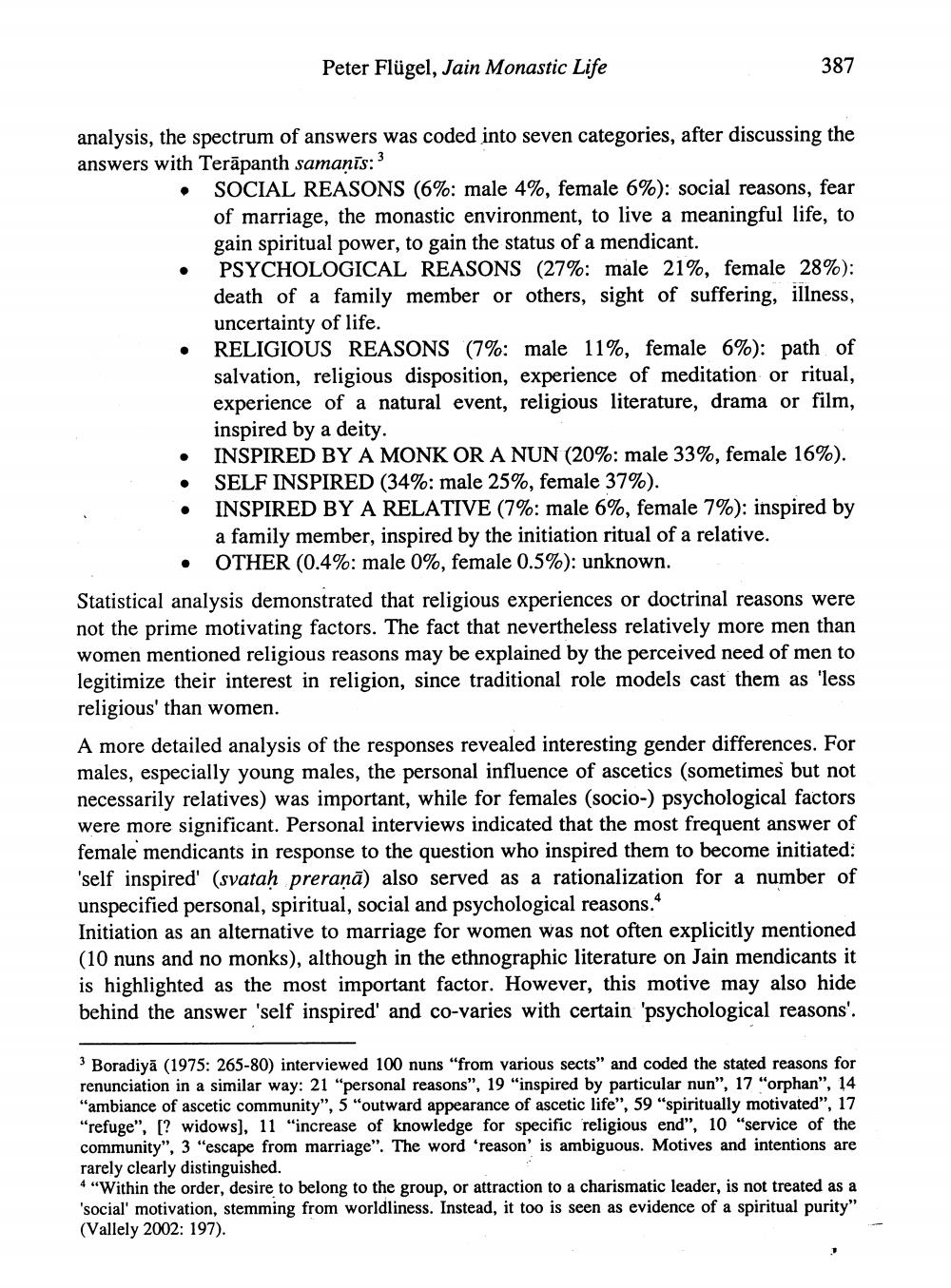________________
•
analysis, the spectrum of answers was coded into seven categories, after discussing the answers with Teräpanth samanis:3
SOCIAL REASONS (6%: male 4%, female 6%): social reasons, fear of marriage, the monastic environment, to live a meaningful life, to gain spiritual power, to gain the status of a mendicant.
•
Peter Flügel, Jain Monastic Life
•
387
PSYCHOLOGICAL REASONS (27%: male 21%, female 28%): death of a family member or others, sight of suffering, illness, uncertainty of life.
RELIGIOUS REASONS (7%: male 11%, female 6%): path of salvation, religious disposition, experience of meditation or ritual, experience of a natural event, religious literature, drama or film, inspired by a deity.
INSPIRED BY A MONK OR A NUN (20%: male 33%, female 16%). SELF INSPIRED (34%: male 25%, female 37%).
INSPIRED BY A RELATIVE (7%: male 6%, female 7%): inspired by a family member, inspired by the initiation ritual of a relative. OTHER (0.4%: male 0%, female 0.5%) : unknown.
Statistical analysis demonstrated that religious experiences or doctrinal reasons were not the prime motivating factors. The fact that nevertheless relatively more men than women mentioned religious reasons may be explained by the perceived need of men to legitimize their interest in religion, since traditional role models cast them as "less religious' than women.
A more detailed analysis of the responses revealed interesting gender differences. For males, especially young males, the personal influence of ascetics (sometimes but not necessarily relatives) was important, while for females (socio-) psychological factors were more significant. Personal interviews indicated that the most frequent answer of female mendicants in response to the question who inspired them to become initiated: 'self inspired' (svataḥ prerana) also served as a rationalization for a number of unspecified personal, spiritual, social and psychological reasons.*
Initiation as an alternative to marriage for women was not often explicitly mentioned (10 nuns and no monks), although in the ethnographic literature on Jain mendicants it is highlighted as the most important factor. However, this motive may also hide. behind the answer 'self inspired' and co-varies with certain 'psychological reasons'.
3 Boradiya (1975: 265-80) interviewed 100 nuns "from various sects" and coded the stated reasons for renunciation in a similar way: 21 "personal reasons", 19 "inspired by particular nun", 17 "orphan", 14 "ambiance of ascetic community", 5 "outward appearance of ascetic life", 59 "spiritually motivated", 17 "refuge", [? widows), 11 "increase of knowledge for specific religious end", 10 "service of the community", 3 "escape from marriage". The word 'reason' is ambiguous. Motives and intentions are rarely clearly distinguished.
4 "Within the order, desire to belong to the group, or attraction to a charismatic leader, is not treated as a 'social' motivation, stemming from worldliness. Instead, it too is seen as evidence of a spiritual purity" (Vallely 2002: 197).




